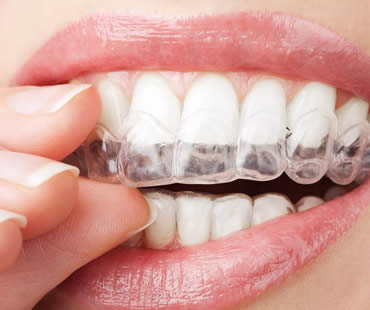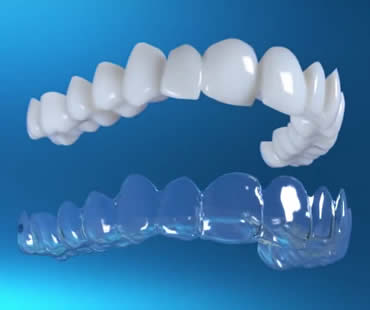Having straight teeth is a goal from young people through mature adults, and achieving a great smile without having to wear braces is a wonderful benefit. Awkward moments of a mouth full of metal, food particles stuck in your smile, and painful wires poking your cheeks are all erased. How do you make this happen? The answer is Invisalign.
Invisalign is an orthodontic solution that involves wearing a series of clear plastic aligners that fit right onto your teeth, and move them using slow pressure. They are nearly invisible and can be removed at any time, allowing you to follow your usual eating and hygiene routines.
The first step is taking impressions of your teeth and making a digital 3-D image so that an exact treatment plan can be created. You will be able to see how your teeth should look at each treatment stage. Your customized aligners will be made in a lab so that they fit comfortably yet do their job.
You will need to wear your aligners during the day and while you sleep, but remove them for eating and hygiene. You can even remove them for special occasions, as long as you strive to wear the aligners 22 hours each day. Roughly every two weeks, you will change to a new set of aligners that will advance you to the next stage of treatment. You will see your dentist about every six weeks for checkups.
Invisalign treatment lasts about a year for adults and about two years for teens. Your progress will be visible throughout treatment, motivating you to continue wearing them to transform your smile. Once your treatment is complete, you’ll have beautiful straight teeth and very few complaints about your orthodontic experience.
If you live in the Weymouth area contact us today









